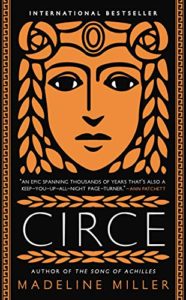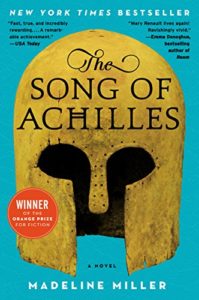Ariadne looks at the many ways women are subject to men (and how both males and females subject to the whims of the gods). All women face one or more of these at the hands of men: domestic physical and emotional abuse, rape, infidelity, being treated as chattel, forced childbearing. In addition, Saint gives glimpses of those things women do enjoy: domestic joy, happy marriages, maternal bliss, pride in one’s own accomplishments. Saint looks at these through the lens of Ariadne, granddaughter of Helios the Sun God, daughter to King Minos and Queen Pasiphae, sister to the Minotaur, sister to Phaedra, and wife of Dionysius.
Ariadne is best known in Greek literature for helping Theseus defeat the Minotaur. When Theseus arrives in Crete, Ariadne falls in love with him. The infatuation Ariadne feels for him falls a bit flat here. In fact, many of the sexual unions, lusty though they may have been, are essentially sanitized, including rape.
Ariadne proves to be a compelling character who undergoes a nice character arc. At times, the novel is written in such a distant point of view that it is difficult to engage with the characters. The characterization of Dionysius makes him out to be almost too human as he doesn’t demonstrate the arrogance of the gods until late in the book. Theseus, on the other hand, is almost too arrogant.
While I enjoyed the novel and had hoped to see it join the ranks of Circe and The Song of Achilles, the prose doesn’t rise to the epic, poetic quality of Madeline Miller’s in those two books.
********************
Ariadne (Flatiron Books, May 4, 2021) is available from:
You can find my reviews of Madeline Miller’s Circe and The Song of Achilles here.
********************
This post contains Amazon Affiliate links. As an Amazon Associate, I may earn a small amount from qualifying purchases.















